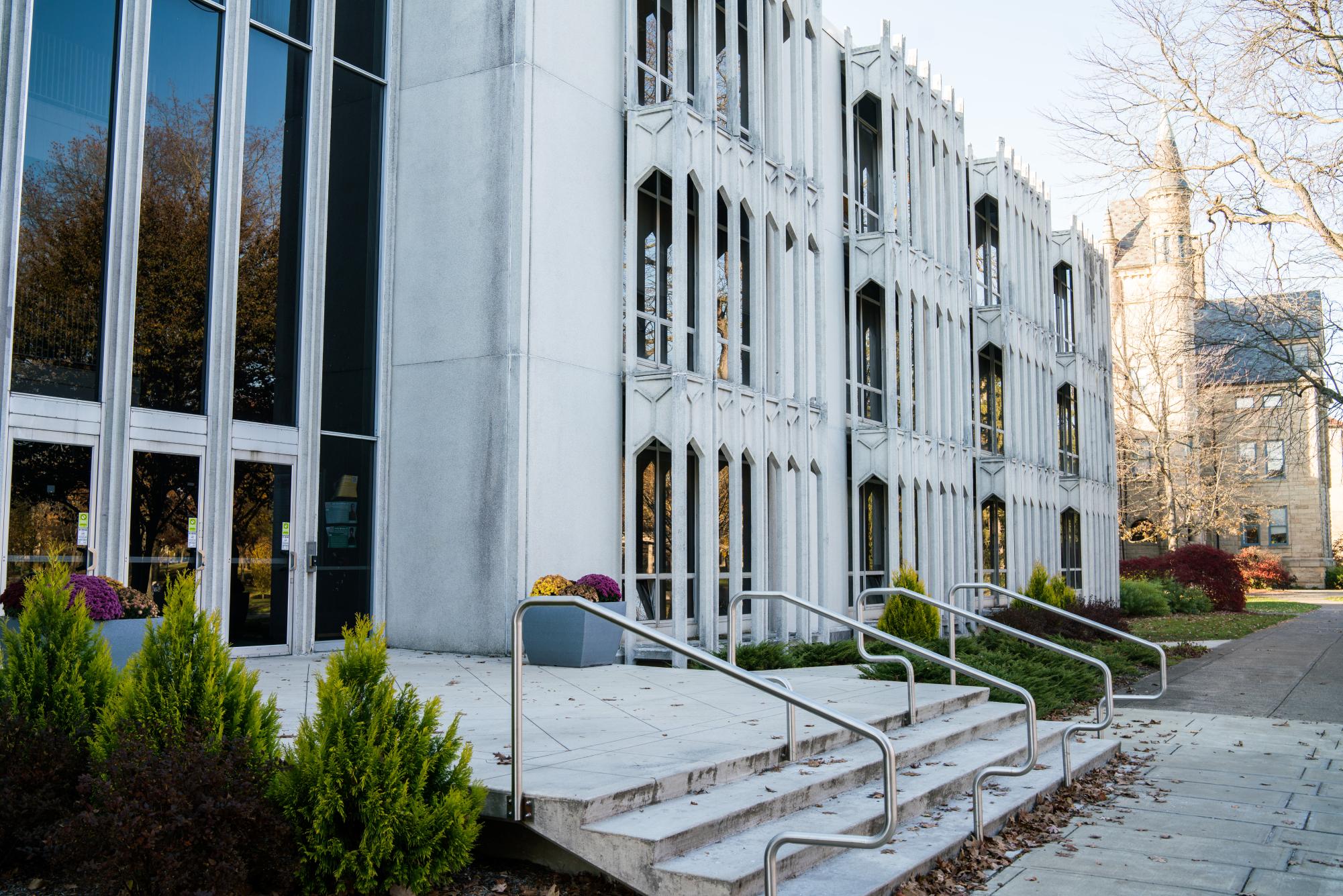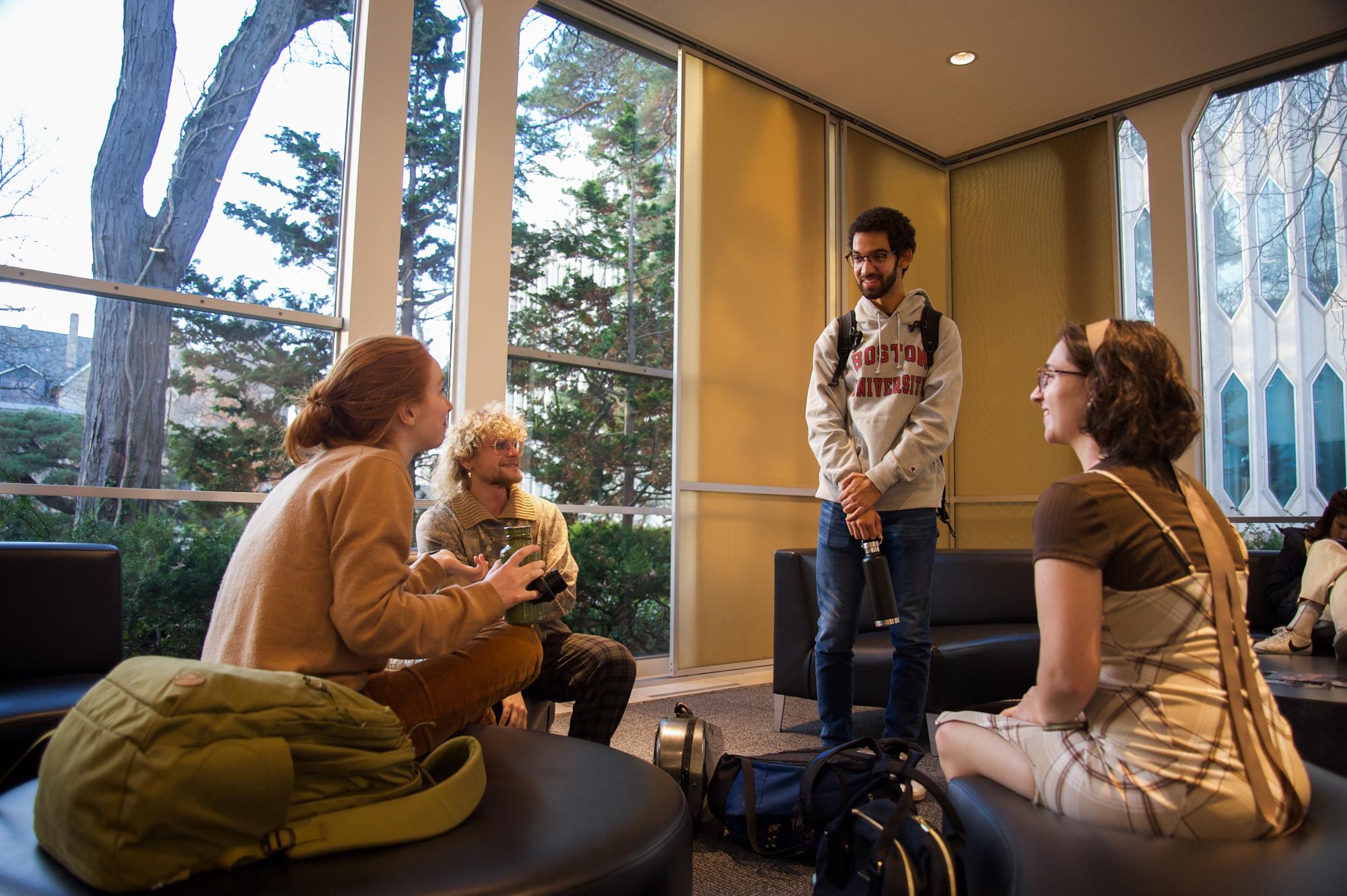Be Patient With Us: Reflections on a Rocky Return to Oberlin
For most of the 10 months we were at home, we thought about our plans for the first weekend of school — we would take walks with friends, finally get a London Fog at Slow Train Cafe, and settle into the new semester. Neither of us had been in the physical vicinity of a friend for months, and we were thrilled at the idea of having socially distanced social interactions again.
But the first weekend of school came, and we found ourselves buried in homework. Between us, we had a paper due, multiple problem sets, and 300 pages of reading all within the first week of classes. On top of the sheer amount of work, we found ourselves digging through the depths of our memories to remember study strategies, MLA formatting, or even just basic essay writing and test taking strategies. After being away from the routine of school for a full year — not to mention existing in essentially complete isolation due to pandemic restrictions — we were thrust back into a high-intensity academic environment without so much as a nod of acknowledgement from the College, let alone assistance in making the transition.
As third-years, the transition into a campus community that had already settled into its pandemic routines did not go smoothly. The plethora of new rules and regulations were entirely new to us, and yet there was an expectation that we would seamlessly settle into them. With all the emotional and academic tumult surrounding our return to campus, we were hopeful that, at the very least, the availability of stable dining options would alleviate the situation. In our extended absence from campus, we had heard about the new dining options that seemed to be dazzling the student body after years of subpar food. We were excited to see for ourselves the changes that had been so lauded by our second- and fourth-year friends.
Much to our surprise, we returned to not just a new set of food options, but an entirely different organization of physical dining spaces. The zigzagging arrows, airport lane dividers, and “Enter” and “Exit Only” signs serve only to exacerbate the confusion of navigating the new-and-improved, COVID-safe dining facilities. Our first month back on campus, we both got yelled at by a staff member in DeCafé at least once a week for accidentally breaking the myriad little rules in place for traffic flow.
Although the confusion around dining is minor in the grand scheme of things, the increased anxiety it causes compounds the underlying stress of returning to academic and social life after a full year’s hiatus. Gigi has personally struggled with maintaining healthy eating patterns since high school, and the added anxieties around food access have not served her relationship with eating, to say the least. Skipping meals becomes a whole lot more appealing when there’s a threat of being yelled at for exiting through the entrance door in a room full of watchful Obies.
Another jarring aspect about the return to campus was how it has transformed under new ObieSafe guidelines. Although it was up to students to familiarize themselves with all the new rules, the ObieSafe website is extensive and disorganized, often containing conflicting information. For example, one part of the ObieSafe website says that “[s]tudents will be instructed when to go for testing,” while another says that it is up to students to schedule their appointments. This led to Ella’s involvement in a testing snafu that resulted in a disciplinary warning from the school coupled with an infantilizing warning “to review the ObieSafe website to make sure you have a full understanding of your agreement.”
Additionally, it felt like there was little grace on the part of administrators and staff about how overwhelming the new procedures could be. Although the learning curve was fast, the first few weeks of school found us desperately trying to understand what was and was not allowed. The College seemed to assume that we were deliberately breaking the rules out of selfishness, rather than being patient and understanding while we navigated a new environment and tried to find solid ground.
Earlier this week, we received the news that a vaccine will be available to our age group at the end of the month. Soon, some of the regulations around social distancing might relax, allowing us to resume our normal lives. In this next transition, the College should keep in mind effective ways to communicate to students who are both on and off campus, especially since second-years will return this summer to what might be a once again radically re-envisioned type of campus life. Rather than assuming these students know what changes have been made, the College should make information clear and be patient with students.
We also hope the administration recognizes that third-years have had to dramatically reorder their lives in order to make the de-densification plan a success. As we begin to transition out of crisis mode, we hope the administration does not just revert to treating third-years like any other class, but instead recognizes the unique position third-years are in. We will likely be burned out from four straight semesters without substantial breaks (if this is something you are already experiencing, fill out this survey by This Week Editor Nico Vickers.) The sacrifice of our summer can make it more difficult to prepare for graduate school, hunt for jobs, or even just work to support our families, and that stress will likely bleed into our senior year. Rather than yelling at us for making mistakes in coping with the uniqueness of our situation, we hope the College will respond empathetically to the emotional roller coaster that our class — and everyone at Oberlin — has been on over the last year.




